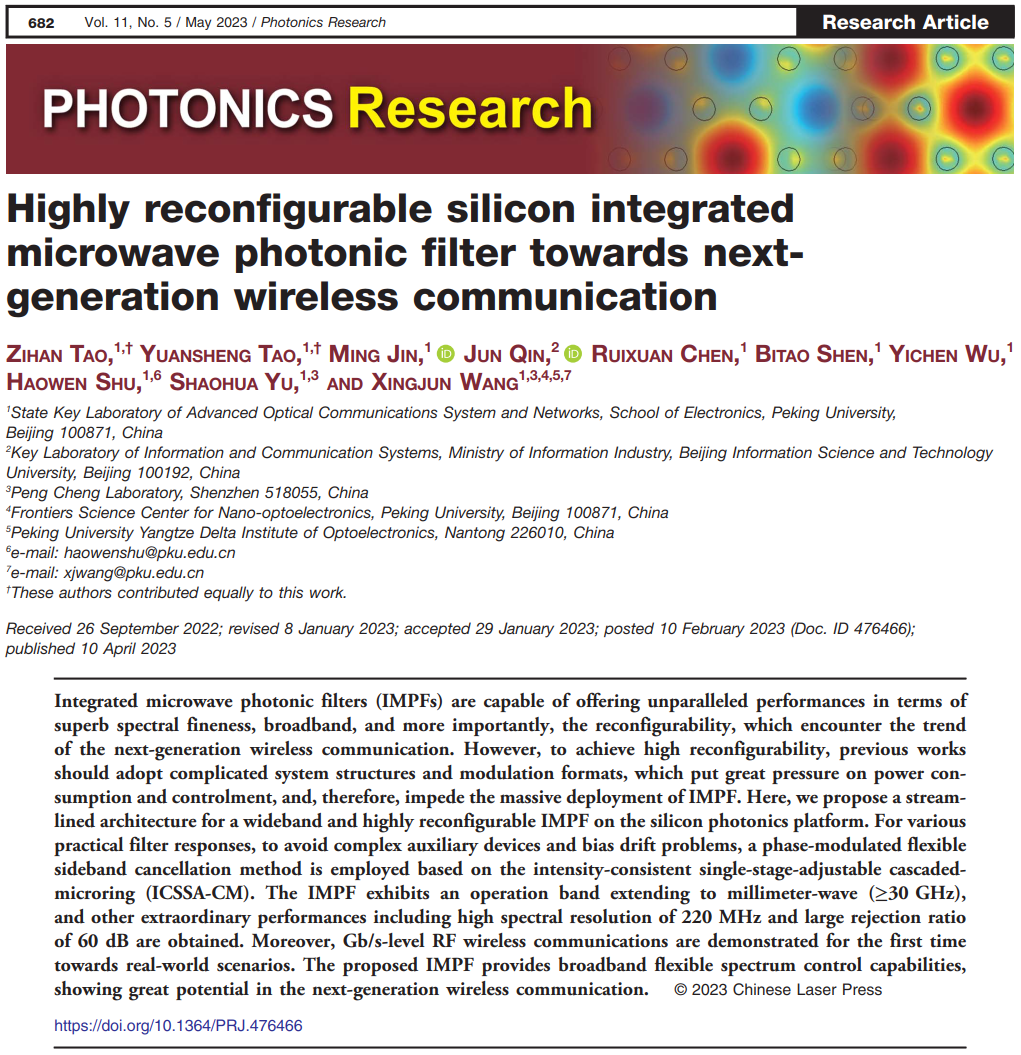As the demand for large data volume in the information age becomes stronger and stronger, the data transmission rate shows explosive growth. The increase in wireless channel density makes the electromagnetic environment increasingly complex. Therefore, the next-generation wireless communication technology represented by 6G wireless communication puts forward higher requirements for hardware devices, which not only need to extend the communication frequency band to millimeter-wave or even terahertz bands to increase the spectrum resources, but also need powerful RF front-ends to suppress the complex and variable burst interference generated by other channels.
Microwave photonic filters have received extensive attention from both academia and industry due to their tunable wide frequency range and versatile filtering characteristics. Emerging photonic integration technologies are also effective in overcoming size, reliability and cost barriers. Therefore, as a key component of RF front-end, the integrated microwave photonic filter chip can effectively solve the above problems and become one of the most promising technological paths to the next-generation wireless communications.
However, previous studies need to rely on a network of programmable photonic devices of high complexity to achieve multifunctional reconfigurable filtering. Meanwhile, the links still need to use discrete RF devices such as phase shifters and bridges to support multifunctional reconfiguration. This is not well optimized for industrial scenarios that require large-scale deployments in terms of cost, energy consumption and latency, nor does it meet the requirements of the 6G development concept of being lighter and more concise rather than more complex.
To solve the above problems, the center's research team has proposed a new microwave filter chip with multi-functionality. This filter chip adopts silicon optical integration technology, which reduces the complexity of control while ensuring extremely high reconfigurability of the system, and provides a wider frequency operation range and multiple filtering functions for the next-generation wireless communications. The related research results were published in Photonics Research 2023, Vol. 5 under the title “Photonic filter separates signals from noise to support future 6G wireless communication”.

Screenshot of the paper
Link to the original paper:
https://www.researching.cn/articles/OJ27722e9b2502c5c1

